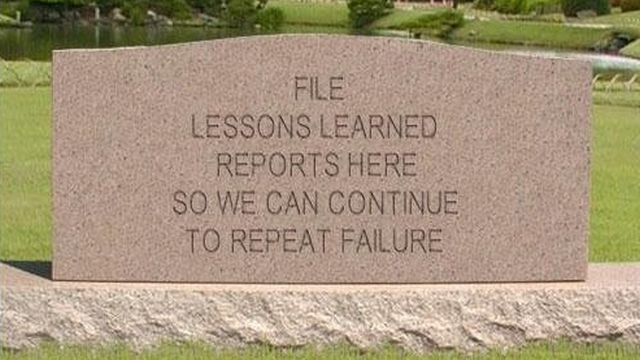
Taking responsibility for complexity (section 3.3): How? A toolkit for negotiated learning
This article is section 3.3 of a series of articles featuring the ODI Working Paper Taking responsibility for complexity: How implementation can achieve results in the face of complex problems.
This section outlines some mechanisms for linking knowledge and action in policy implementation. On the one hand, the main task is to find useful tools and approaches, which for any one policy or programme is likely to involve an eclectic mix. Ensuring utility in M&E1 will require significant flexibility in what methods are used, and there are a growing number of alternatives – for example, ACT Development2 outlines 24 methods that offer relevant approaches for different needs and contexts. In complex problems, it is often impractical to focus on simple, predefined indicators to understand the effects of action. For example, RAPID’s3 experience in M&E of the influence of research on policy shows that a wide range of information must be drawn on and synthesised, opportunistically as well as through planned data collection methods4.
In addition, it is important to draw on different sources of knowledge at many different levels and at various junctures during implementation. For example, using scientific knowledge to contribute to improved agricultural productivity is likely to need scientists working closely with local communities in culturally sensitive ways5. Another example of how to incorporate scientific knowledge comes from evidence showing the value of having a cadre of staff with professional competencies working at the country level in development agencies6. A variety of tools have been developed to feed citizens’ perspectives into policy at a variety of levels and moments. As we have seen, CSOs have achieved success in methods such as participatory budgeting and participatory budget tracking7; other initiatives such as citizens’ juries and social audits have proved successful in reviving and enhancing institutions of local governance and collective action. Approaches to participation in the private sector include ‘representative participation,’ whereby groups of employees are involved in decision-making with management through consultative committees, work councils and representation on company boards; and ‘employee involvement,’ formalised means for feeding different perspectives into decision processes such as ‘problem solving groups,’ ‘total quality management’ and ‘decision-making teams’ 8.
Meanwhile, a complexity focus also brings into focus some specific areas where there are clear differences from traditional approaches. Some tools are particularly appropriate for messy problems with a number of different dimensions and contrasting perspectives, not just on courses of action but also in relation to the framings of a problem.
The subsections in this section (section 3.3) are:
3.3.1 – Decisions from deliberation
3.3.2 – Focusing on how change happens
3.3.3 – Realistic foresight
3.3.4 – Peer-to-peer learning
3.3.5 – Broadening dialogues
3.3.6 – Sense making for common ground
3.3.7 – Facilitation and mediation.
Next part (section 3.3.1): Decisions from deliberation.
See also these related series:
- Exploring the science of complexity
- Planning and strategy development in the face of complexity
- Managing in the face of complexity.
Article source: Jones, H. (2011). Taking responsibility for complexity: How implementation can achieve results in the face of complex problems. Overseas Development Institute (ODI) Working Paper 330. London: ODI. (https://www.odi.org/sites/odi.org.uk/files/odi-assets/publications-opinion-files/6485.pdf). Republished under CC BY-NC-ND 4.0 in accordance with the Terms and conditions of the ODI website.
References and notes:
- Monitoring & Evaluation. ↩
- ACT Development (2009). ‘A Guide to Assessing Our Contribution to Change.’ London: ACT Development Impact Project Working Group. ↩
- Research and Policy in Development (ODI). ↩
- Young, J. and Mendizabal, E. (2009). ‘Helping researchers become policy entrepreneurs’. ODI Briefing Paper, London: ODI. ↩
- Leach, M. and Scoones, I. (2006). The Slow Race: Making Technology Work for the Poor. London: Demos. ↩
- Mendizabal, E., Jones, H. and Clarke, J. (2010). ‘Review of Emerging Models of Sharing Advisory Capacity in Health and Education Sectors.’ Report for DFID. London: ODI. ↩
- Chambers, R. (2008). Revolutions in Development Inquiry. London: Earthscan. ↩
- Heller, F., Pusic, E., Strauss, G. and Wilpert, B. (1998). Organizational Participation: Myth and Reality. New York: Oxford University Press. ↩





